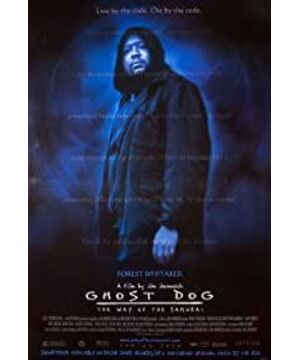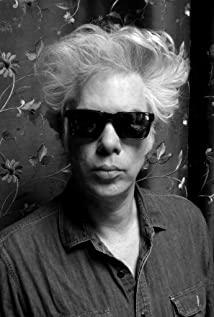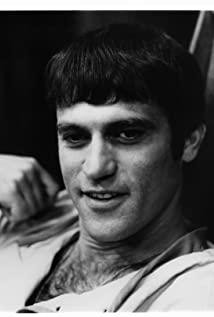The director of this film is one of my favorite directors, Jamusch. As for how cool the director himself should be, I don't have to say much. Even if you don't know the director's life story, as long as you just watch a few of his films, you can understand it. 'The
story is about a killer who is superstitious about the spirit of Japanese Bushido, and finally martyrdom with revenge. In the movie, a very individual black killer character is created. It can be said that this killer has pretended to be a killer. In my movie-watching career, the only killer who can be compared with it is probably the philosophy-loving killer played by Tomoko in the movie "Killing with a Knife".
But unlike Tom’s killer talk, the black killer ghost dog played by Forest Whitaker in this movie is taciturn, solitary, living alone on the roof of the building and raising a group of pigeons. . His best friend is an ice cream boy who can only speak French but not English. Because of the different languages, even though he is each other's best friends, he still cannot communicate smoothly.
Of course, this is still not cool enough. The coolest thing is that although he is a black American, he is fascinated by Japanese Bushido, and regards it as the highest belief in life, and takes "loyalty" as his life criterion. He likes to read, mostly books about ancient Japanese culture and Bushido. He gets up early every day to practice samurai swordsmanship, and uses the way the samurai draws his sword and closes his sword to draw his spear and snatch.
The ghost dog lives alone in his own world, but the world around him has undergone tremendous changes. Although there are concrete cities in the movie, in fact this world is just an abstract world with allegorical nature. The film quoted the classic Buddhist doctrine: "All forms are nothingness, and nothingness is a form of existence."
Jia Muxu told reporters that he had persuaded Whitaker to play the role of a ghost dog. It is hard to imagine that anyone else could play this role. The cold-blooded killer is full of warmth and humanity, or a mysterious killer for a while, a lonely young man with books, music, and pigeons.
The story of the whole movie is very simple, because the Mafia elements accidentally saved his life when he was young. Therefore, the ghost dog who believes in Bushido regards him as his master, and he is his samurai, and he is sent by him to become a killer to kill him.
The way of communication between the two of them is also very interesting. They didn't meet each other, and passed the news through the most traditional flying pigeons. As for the remuneration for the killing, it is only paid in a lump sum on the first day of the fall of the year. He didn't know where the ghost dog lived, or even what the ghost dog looked like, because he had only seen each other on the day he saved him.
But the ghost dog is his most reliable killer. In four years, he has completed 12 tasks perfectly, appearing like a ghost, killing people, and then disappearing like a ghost, no one can find him. Moreover, the ghost dog is extremely loyal to him, and like a dog, he is willing to pay his life for his master. So, call it a ghost dog killer.
But in an internal struggle between the gang, Guigou was ordered to assassinate a gang member. However, in order to explain to the other boys, the unscrupulous Mafia boss decided to avenge him and eliminate those involved in this matter. In order for the owner of the ghost dog to survive, he can only confess the ghost dog and push all the responsibility on him.
But the gang members did not intend to let go of the owner of the ghost dog. After learning about this, the ghost dog decided to avenge the gang, but he started his road of revenge. This kind of revenge story was filmed by Jia Muxu with a very accent, the ghost dog killed all the way, and in the end only the owner's life was left.
However, the owner, as a gang member, cannot let go of the ghost dog, even if he knows that everything the ghost dog does is for his safety. Therefore, in the end, the ghost dog and its owner face-to-face confrontation, just like cowboys in western movies.
The ghost dog based on loyalty did not intend to shoot at his master, so he unloaded the bullet in the gun in advance, and even put away the gun in the hand of a good friend. In the end, in order to repay the owner, the ghost dog gave his life and died under the owner's gun.
In fact, fans who have some knowledge of Hong Kong underworld movies in the 1990s may be able to see that the whole movie promotes the word loyalty advocated by the underworld of that era. Although the loyalty of the underworld in Hong Kong comes from Guan Gong, the loyalty of this movie comes from Japanese Bushido. But in the end, they can be regarded as different tunes with the same work, and different routes have the same goal.
There is not much dialogue in the movie, and the most common sentence of the ghost dog is probably: Sometimes, it is still the old way. The old way that Guigou said is the way of loyalty and righteousness passed down in Bushido. In contrast, the Mafia members in the movie can clearly see the difference between the two.
This group of mafia is in arrears of rent, is threatened by the owner and dare not say anything, but can fight with a naughty boy and delay the call of the boss; most of them are old men, and the people sent out to chase ghost dogs are so old that they almost even have stairs. Can't crawl; the gang bosses are as simple as children or even scared to death by the appearance of ghost dogs, or indulge in TV cartoons all day long.
It can be said that the Mafia members in this movie are completely incomparable with those in "The Godfather". "The Godfather" is a high-spirited man who kills people and gangs up; but this movie is the Mafia's twilight years, at best. It's just a little bit of nonsense and sly. The only difference between them and ordinary citizens is that they still retain the courage to hold a gun.
This is a lifeless gang society that has been subverted by Jamush. Instead of seeing the underworld in the movie as a real underworld, it is better to regard it as the living environment we face every day. This lack of social spiritual support, people live unconsciously and meaninglessly.
Akutagawa Ryunosuke’s novel "Rashomon" is mentioned more than once in the movie. The ghost dog borrowed the book from the mafia boss’s daughter. After reading it, he lent it to a little girl, and finally gave it to his master when he was dying. Fans who have read this book will certainly be able to appreciate the significance of Jiamuxu's constant mention of this book in the movie.
To a certain extent, "Rashomon" is the key to the interpretation of this movie. "Rashomon" and "Ghost Killer" are like the past and the present, like the East and the West, like life and death, like you who read the words and me who writes them, both are there, separated by rivers and lakes. Facing each other.
There are rivers and lakes where there are people, and there are rivers and lakes where there are people. Rashomon is the gate of the rivers and lakes that shelters the homeless people from the wind and rain. The ghost dog killer, like the abandoned samurai in Rashomon, is in the changing of the times, and he cannot find a way to adapt to the times in his own body. They all made their own choices to become robbers or stick to their own ways.
Speaking of Jia Muxu, I always think of Wang Jiawei. Just as he said in "Evil Evil and West Poison": Everyone will stick to their beliefs, which is a waste of time in the eyes of others, but he thinks it is very important.
View more about Ghost Dog: The Way of the Samurai reviews











